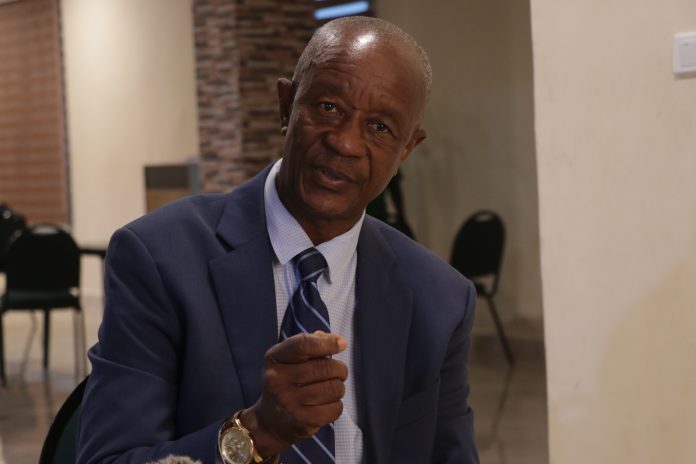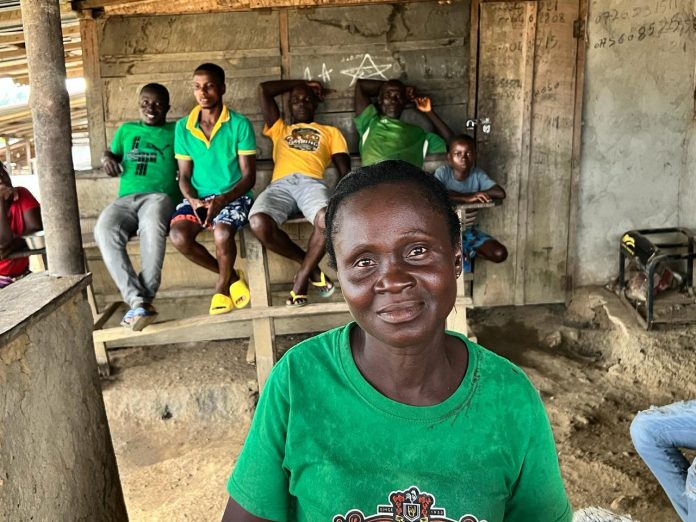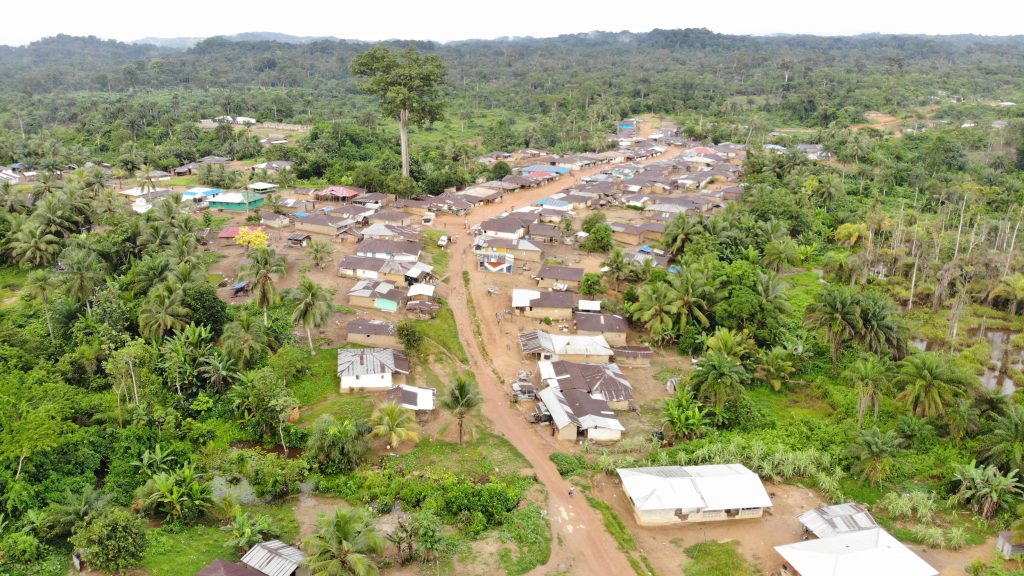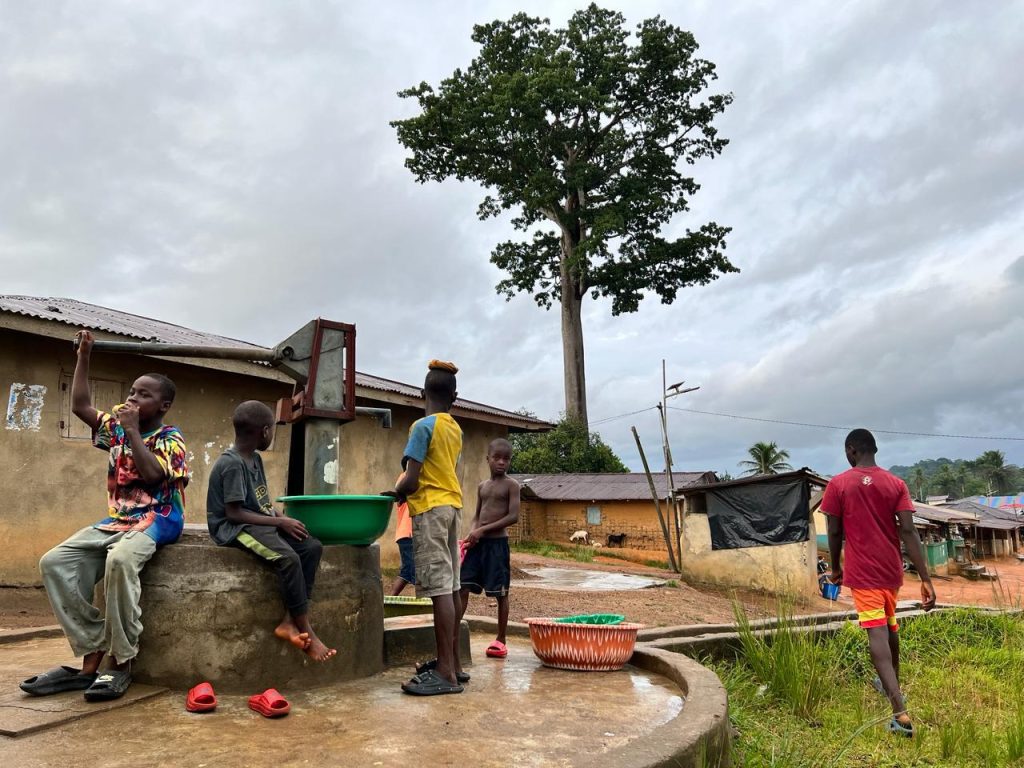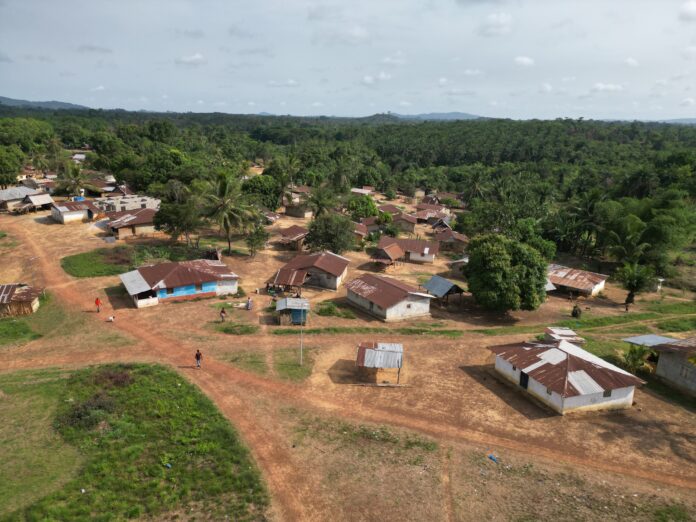Top: The Chairman of the Land Authority Atty. Adams Manobah speaks to The DayLight on the margins of the Second Land Conference in Ganta, Nimba County. The DayLight/Harry Browne
By Esau J. Farr
GANTA, Nimba County – Delegates at the 2024 National Land Conference on Tuesday called on the Liberia Land Authority to speed up the issuance of deeds to customary communities.
Dozens of communities have completed the required process to obtain a customary land deed under the Land Rights Act but are yet to get their titles. Out of some 150 communities, only 36 have received their deeds since the creation of the law in 2018, according to available figures.
“There is a need to fast-track the formalization of customary land in Liberia, and grand their deeds after the Ganta conference,” said James Yarsiah, the chief organizer of the conference, the second in two years.
“Deeds are taking too long to process, the cost is too high and donors are getting concerned,” Yarsiah added.
The conference seeks to review the implementation of the Land Rights Act, which is hailed worldwide but has faced enforcement challenges. The Land Rights Act guarantees customary landownership but requires rural communities to complete a legal process.
Dozens of communities have completed the process but LLA has yet to conduct an official survey to confirm their land areas and present their deeds.
Last year a group of CSOs accused the Land Authority of delaying communities whose processes are funded by CSOs and speeding up those supported by the regulator. That point echoed at the event before hundreds of conference delegates.
“The issuance of titles should not be restricted to few communities,” said Loretta Pope-Kai, the executive director of the Foundation for Community Initiatives (FCI).
FCI implements a project funded by the International Land and Forest Tenure Facility, an NGO based in Sweden. That project seeks customary deeds for 24 communities in seven counties, some awaiting deeds.
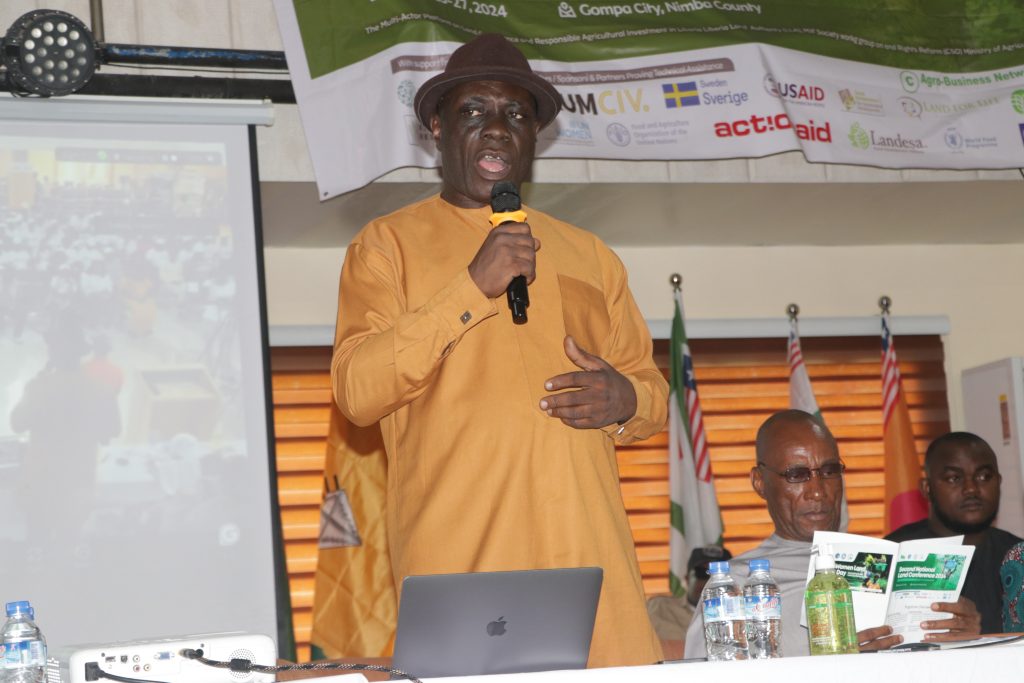
“It is now time that the Liberia LLA exercises its mandate by issuing deeds to communities that are ready or have gone through the customary land formalization processes,” added Mrs. Pope-Kai.
In an interview with The DayLight, the Chairman of the Land Authority Adams Manobah said the regulator was cash-strapped to conduct surveys. Manobah said the government had not provided the regulator funding for customary land activities
“If the government does not make it a priority to fund the implementation of the Land Rights [Act], very soon the donors may withdraw from the field,” Manobah told The DayLight on the margins of the conference.
But Manobah’s comments do not reflect the whole picture. Even though the Liberian government has not funded customary-deed activities, international NGOs and foreign governments have.
The Tenure Facility project allots US$280,000 to the Land Authority over a three-year period.
The Land Management Activity, a five-year USAID project, supports the Land Authority’s surveys and deeding exercises.
Representative of Nimba County District #2 Nyahn Fomo called on the regulator to change its approach to mobilizing resources from the government. Flomo, a former land rights campaigner, urged the regulator to rally the support of the Ministry of Finance and Development Planning and the House of Representatives.
He said the Land Authority was “crawling” in meeting timebound provisions of the law.

